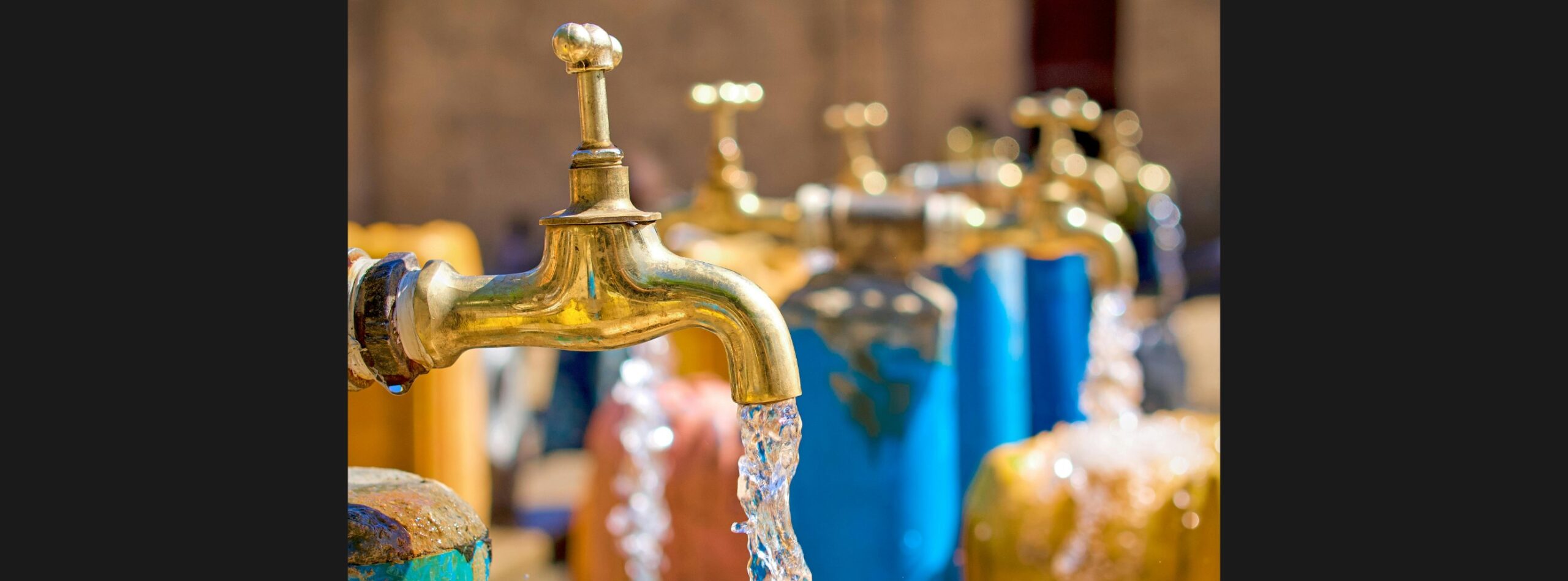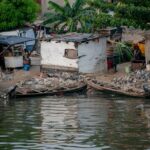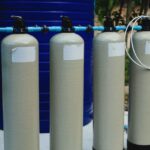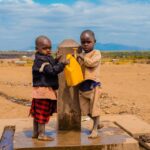The Future of Ghana’s Water Supply: What Needs to Change?

Water is essential for life: it’s needed for drinking, cooking, farming, and many other daily activities. In Ghana, having a steady and clean water supply is crucial for health and development. However, ensuring that everyone has enough clean water is not an easy task. Ghana faces many challenges when it comes to water supply, including population growth, pollution, and old infrastructure.
To make sure that future generations have access to safe and reliable water, changes are needed. This article explores the current state of Ghana’s water supply, the challenges it faces, and what needs to change to secure a better future for all.
Current State of Ghana’s Water Supply
Ghana relies on several sources for its water supply, including rivers, lakes, boreholes, and reservoirs. Major rivers like the Volta and the Densu are key sources of water. In cities, water is mostly supplied through pipes, while in rural areas, people often depend on boreholes and wells.
Despite these sources, not everyone in Ghana has access to clean and safe water. Urban areas are better served than rural communities, where people sometimes have to walk long distances to get water. In some cases, the water they collect is not safe to drink, leading to health issues.
Additionally, the infrastructure used to supply water is old and needs repair. Leaking pipes and poor maintenance cause water loss, reducing the amount available for people. This situation shows that while Ghana has water resources, the systems to manage and deliver them need significant improvement.
Key Challenges Facing Water Supply
Several challenges are affecting Ghana’s water supply, which makes it clear that maintaining a reliable water supply in Ghana requires strategic planning and investment.
Some of the challenges are:
- Population Growth and Increasing Demand: Ghana’s population is growing rapidly, leading to a higher demand for water. This puts pressure on existing water sources and infrastructure, making it hard to keep up with the needs of the people.
- Climate Change: Changes in weather patterns, such as unpredictable rainfall and prolonged dry seasons, are affecting water availability. Some rivers and reservoirs dry up during droughts, leading to water shortages.
- Water Pollution: Water sources in Ghana are increasingly polluted by mining activities, industrial waste, and poor waste disposal practices. Illegal mining (known as ‘galamsey’) is a major contributor, contaminating rivers with chemicals like mercury.
- Aging and Inadequate Infrastructure: Many of the water pipes and treatment plants in Ghana are old and cannot support the growing demand. Leaks and breakdowns are common, leading to frequent water shortages.
The Role of Government and Policy Changes
The government plays a crucial role in ensuring that everyone in Ghana has access to clean water. This includes setting policies and regulations that protect water sources and ensure fair distribution.
To improve water supply, the government needs to:
- Enforce Strict Environmental Regulations: This will help reduce pollution from industries, mining, and waste disposal. Ensuring that companies treat their waste before releasing it into water bodies is essential.
- Invest in Water Infrastructure: Upgrading old water pipes, building new treatment plants, and expanding water networks to underserved areas are necessary steps. This requires significant investment but is crucial for long-term water security.
- Promote Water Conservation: Policies that encourage people to use water wisely can help reduce wastage. Public awareness campaigns can educate people about the importance of saving water.
- Collaborate with Local and International Partners: Working with NGOs, private companies, and international organizations can bring in the needed funds and expertise for water projects.
The Impact of Climate Change on Water Availability
Ghana’s weather is becoming less predictable due to climate change. Rainfall patterns have changed, causing longer dry seasons in some areas and heavy floods in others. This directly affects the availability of water. When it rains less, rivers and reservoirs dry up, making it harder to provide enough water for people, farms, and industries.
On the other hand, when there is too much rain, floods can contaminate water sources with dirt, waste, and chemicals, making clean water harder to find. If Ghana does not prepare for these changes, water shortages will become more common, especially in rural areas that already struggle to get enough water.
The Role of Technology in Improving Water Supply
Technology can help solve many of Ghana’s water problems. Modern water treatment methods can remove harmful substances from polluted water, making it safe to drink. Smart water meters can also help monitor water use and detect leaks, preventing wastage.
In some rural areas, solar-powered water pumps have been installed to draw water from underground, providing a steady supply even in dry seasons. These systems do not rely on electricity and can run efficiently for years.
Additionally, mobile apps and online platforms can be used to track water quality, report shortages, and share information with the public. Investing in technology can make water management more efficient and ensure that clean water reaches more people.
Community Involvement in Water Management
Communities play a key role in keeping water sources clean and managing local water supply systems. In many parts of Ghana, community members are already responsible for maintaining boreholes and wells. However, they need more training and support to ensure these systems function properly.
When people understand the importance of protecting water sources, they are more likely to take action against pollution and wastage. Schools and local organizations should educate people on how to use water wisely and keep their environment clean.
Community leaders can also work with local authorities to report issues like broken pipes, illegal mining, or waste dumping. When communities are actively involved, water management becomes more effective and sustainable.
The Importance of Funding and Investments in Water Supply
Improving Ghana’s water supply requires money. The government alone cannot afford all the necessary projects, so private companies, international organizations, and local businesses must also contribute.
Many organizations are already working to provide clean water in Ghana, but more funding is needed to expand these efforts. Foreign aid, partnerships, and loans can help build new water treatment plants, repair broken infrastructure, and support innovative water-saving technologies.
Additionally, businesses can invest in water-efficient solutions, such as recycling water in their operations, to reduce pressure on public water supplies. By working together, both public and private sectors can ensure that every Ghanaian has access to safe and reliable water.
Strengthening Water Policies and Regulations
Laws and policies play a big role in managing Ghana’s water supply, but many rules are not strictly enforced. Illegal activities like mining and waste dumping continue to pollute water sources, and some industries use large amounts of water without proper regulation.
To improve the situation, the government needs to strengthen existing policies and ensure they are followed. Water protection laws should be enforced to prevent pollution and industries must be held accountable for how they use and treat water.
Public education is also important. When people understand the laws and their rights, they can help report violations and push for better enforcement. Stronger policies will help keep Ghana’s water safe and available for future generations.
Expanding Water Infrastructure to Meet Growing Demand
Ghana’s population is growing, and more people means a higher demand for clean water. Unfortunately, the country’s water infrastructure has not expanded fast enough to keep up. Many towns and villages still rely on old pipes, boreholes, and small water treatment plants that cannot serve everyone.
Expanding infrastructure means building more water treatment plants, repairing old pipes, and setting up new water supply systems in rural areas. It also means improving storage facilities so that water can be saved for times of scarcity.
Encouraging Water Conservation Practices
Even with improvements in supply, water conservation is essential. Many people waste water without realizing it – leaving taps running, using too much for everyday tasks, or failing to fix leaks. If this continues, water shortages will become worse, especially in dry seasons.
Education campaigns can teach people how to use water wisely, such as turning off taps when not in use, fixing leaks quickly, and using water-saving appliances. Businesses and industries can also play a role by recycling water and using efficient technologies to reduce waste. When everyone makes an effort to conserve, Ghana’s water supply will last longer and serve more people.
The Role of NGOs and International Organizations
Many non-governmental organizations (NGOs) and international groups are working to improve water access in Ghana. They build wells, install filtration systems, and educate communities on water safety. However, their efforts can only go so far without enough funding and local support.
More partnerships between the government, businesses, and NGOs can strengthen these efforts. Local communities should also be involved in maintaining water projects so they remain sustainable.
Organizations like Aqua Maya are already making a difference by providing clean water solutions to underserved communities. More collaborations like this can help bring lasting improvements to Ghana’s water supply.
Conclusion
Ghana’s water supply is at a turning point. While progress has been made, many challenges remain, from outdated infrastructure to pollution and climate change. To secure a future where clean water is available to all, action must be taken now.
Investments in better water systems, stricter policies, and conservation efforts will help ensure long-term water security. Expanding access to rural areas and strengthening partnerships with NGOs and international organizations like Aqua Maya will also play a key role.
Most importantly, every Ghanaian has a part to play – whether by using water wisely, protecting natural sources, or supporting initiatives that improve water access. With commitment and cooperation, Ghana can build a future where safe, reliable water is no longer a privilege, but a basic right for all.
Sources
1. https://www.unicef.org/ghana/water
2. https://ghana.un.org/en/224267-un-ghana-water-sanitation-and-hygiene-support-programme
3. https://www.sciencedirect.com/science/article/pii/S2589757824000271
5. https://www.worldbank.org/en/news/feature/2020/11/18/scaling-up-water-and-sanitation-in-ghana






